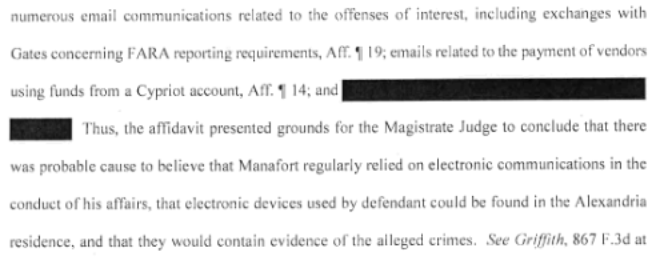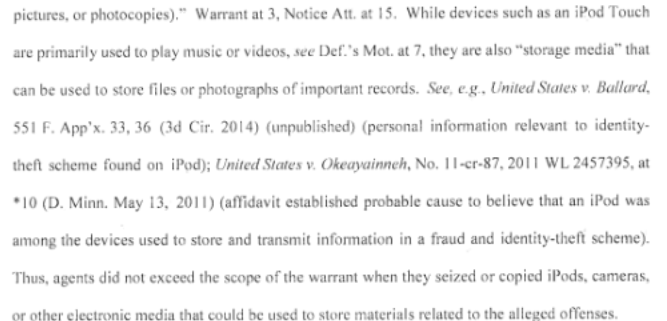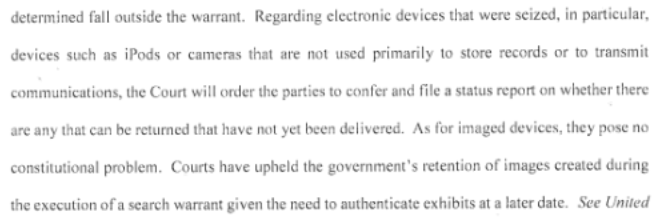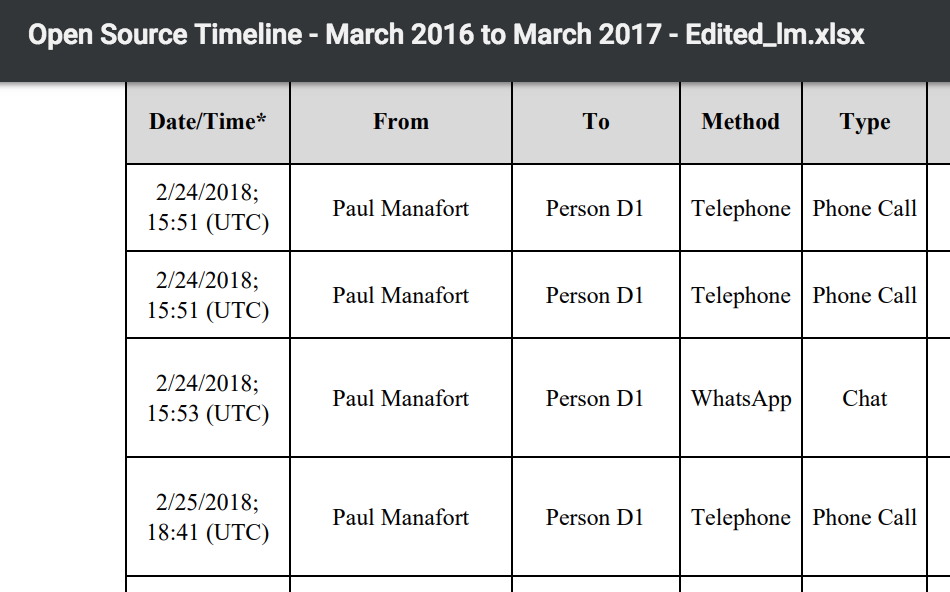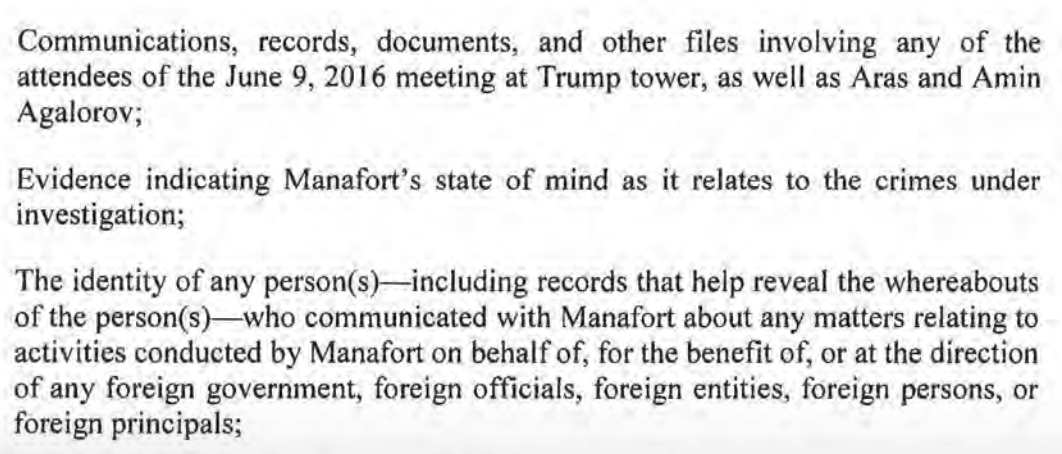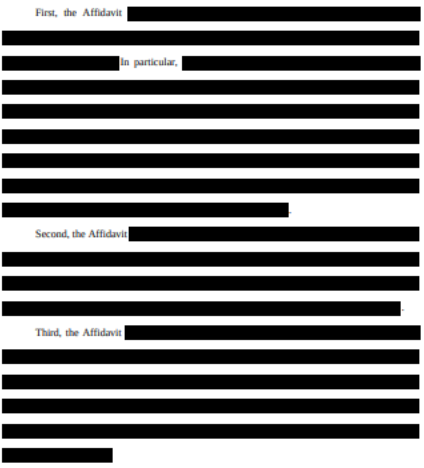The Trump Team Strategic Errors: Rockets Instead Bursting In Air
During the winter, when the government was threatening and then did charge Paul Manafort with a bunch of tax fraud charges, he chose not to waive venue, forcing himself into two trials, one in EDVA and one in DC. (Raising the perennial question, who is paying for his legal representation?)
At the time, Josh Gerstein suggested might be seeking to avail himself of EDVA’s famed “rocket docket” which pushes trials through quickly. The thought was perhaps Manafort would have a better result with EDVA’s more conservative jury pool before his DC trial started, which in turn might be a way to discredit the Mueller investigation (something that has always seemed key to any strategy pursuing a pardon).
Manafort’s attorneys’ decision to effectively force some — but not all — of special counsel Robert Mueller’s case against him to northern Virginia baffled many lawyers, since it puts Manafort at risk of two separate trials rather than one. To some, it’s akin to choosing to play Russian Roulette with two bullets in the gun instead of one.
However, because the Alexandria-based federal court’s “rocket docket” is known for providing quick trials, there’s a possibility that Manafort could get to trial on bank and tax fraud charges in Virginia before the Sept. 17 trial date set Wednesday by Judge Amy Berman Jackson in Washington in the original case, now scaled back to focus on money laundering and failure to register as a foreign agent.
That means Manafort has a chance of getting his case before a northern Virginia jury first — a panel more likely to include Trump supporters who may be skeptical of Mueller’s enterprise. Such jurors are likely to be a rarity in Washington.
[snip]
If Manafort could pull off an acquittal in Alexandria or even a hung jury, it could fuel President Donald Trump’s view of the Mueller probe as a prolonged “witch hunt” that is more persecution than prosecution. That would seem certain to lead to calls for Mueller to abandon the D.C. case and might prompt a pardon from Trump or some action to shut down the special counsel’s office altogether.
Even if nothing so dramatic happened, a stumble for Mueller’s team in Virginia and in its first contested trial could raise pressure for prosecutors to be more flexible in negotiating a plea deal.
Not long after at Manafort’s EDVA arraignment before the cantankerous TS Ellis, however, his attorney Kevin Downing admitted that they would prefer either everything move to EDVA, or the EDVA trial go second, after the DC trial still scheduled to start on September 17.
MR. DOWNING: We’re actually thinking trying to get the conspiracy to come here. We’re happy to be here.
[snip]
MR. DOWNING: In this perfect world where I have my rosy glasses on, we were envisioning that we would be trying this case in November following the case in D.C.
THE COURT: You need to go back to the optometrist, because that isn’t going to happen.
MR. DOWNING: Okay.
THE COURT: You’ve got a trial date in September in the District? Mr. Weissmann, this case seems — maybe I’m not familiar with the indictment in D.C., but this case seems less complex than the one in D.C.
MR. WEISSMANN: That’s our view as well. The tax charges, as we mentioned, do largely overlap. But unlike the D.C. case, there are no Foreign Agents Registration Act charges before this Court. And those involve quite an extensive array of evidence and different theories of liability. Here we have what I think are five bank frauds and they are discrete over a two-year period and the discovery has been produced.
THE COURT: All right. Mr. Downing, I’m going to set this matter in July. Now, if in the course of your preparation something comes up that suggests to you that you now have a more persuasive basis for me to consider on a later trial date, I’ll consider it. But for now, 12th of — or not 12th — 10th of July at 10 a.m. with a jury. Also having that earlier deadline is an important — it will focus your minds, everyone’s minds on it and get this matter done.
In July, Manafort used his jailing by Amy Berman Jackson as an excuse to ask for a delay in the EDVA trial.
In a response, the government demonstrated to Ellis that Manafort was still trying to have his desired outcome, to have the DC trial go first.
Manafort can hardly now complain about the order of the trials: he was on notice from the Honorable Amy Berman Jackson, when he elected last winter not to have the proposed tax and bank fraud charges all brought in the D.C. Case, that his decision would likely result in his going to trial in Virginia first. D.C. Case Status Hr’g Tr. (Jan. 16, 2018). That other reasons may account for this application is strongly suggested by a prison call in which Manafort discusses going to trial first in the D.C. Case and contends to the listener (who did not believe the D.C. venue was favorable) that the listener should “think about how it’ll play elsewhere….There is a strategy to it, even in failure, but there’s a hope in it.” Phone Call of Manafort (June 20, 2018), at 4:02-4:39.
The trial went off in July as scheduled, meaning Manafort faced the more traditional of charges first.
Still, getting one trial in EDVA almost worked, with a holdout juror that hung the jury on 10 of 18 charges (though that won’t have that big an effect on sentencing) and lots of good press stemming from Ellis beating up the prosecution, both during Manafort’s challenge to Mueller’s authority and during the trial in general.
Add in the fact that Manafort (again, with his seemingly endless supply of funds to pay defense attorneys) got two bites at key challenges to Mueller’s case in chief — his authority generally, and the search of Manafort’s condo for things including evidence about the June 9 meeting — and the dual trial strategy probably wasn’t a total flop (unless, of course, it means Manafort is running out of money). Along the way, he also got full discovery on what Rick Gates has provided Mueller, presumably including the real goods Gates gave Mueller on the conspiracy with Russia.
But Manafort’s still facing another trial in a less friendly venue before a no-nonsense judge, a trial he seems to have done nothing to prepare for. (WSJ reports the two sides did consider a plea on the DC charges while waiting for the EDVA verdict, to no avail.) And all of Rudy’s squealing about how indictments or even further investigation during the campaign season might be a distraction, Manafort’s trial (one that’s sexier than the EDVA one) will remain a constant focus in the last six weeks before the election.
To be fair, it’s hard to measure how Manafort’s strategy is playing, as it’s not clear what — besides a full pardon — his goals are. Plus, he’s got a shitty hand, no matter how you look at it (except for the seemingly endless supply of defense fund dollars).
But Manafort’s bid for a second trial seems like an even worse strategic decision than Michael Cohen’s bid for a Special Master (which I now admit at least gave Trump and his company an opportunity to undercut any Cohen bid for a plea deal) not least because he’ll be a felon in his DC trial which will in turn make sentencing worse if he is found guilty there.
At least the defense bar is making money.



